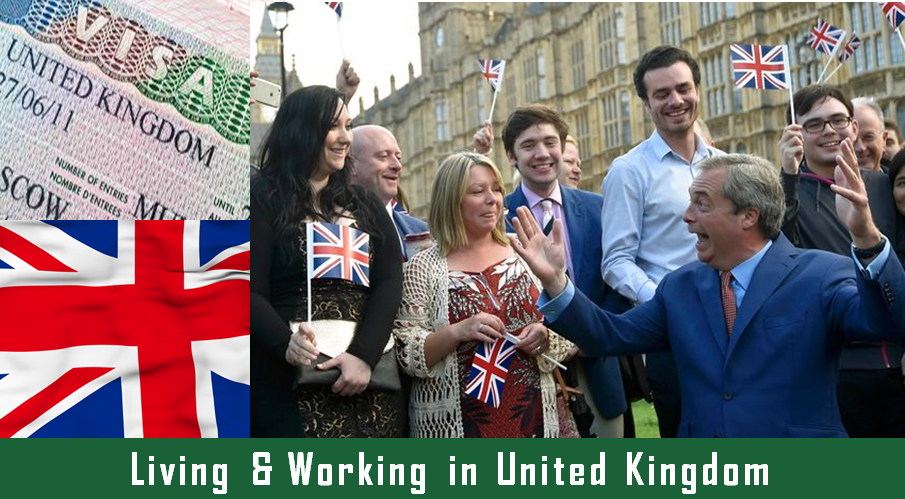UK Work Permits

British Work permits enable non-EU citizens to live and work in the UK in a pre-defined role for a pre-determined company.
Unlike making an application for a visit visa, it is not the responsibility of the individual to apply for a work permit in the UK. A UK work permit application must be submitted by a sponsoring company in Britain based on a specific offer of employment. You cannot obtain the permit to work in Great Britain yourself nor can you request extensions for UK work permits.
A working visa of this kind does not grant general permission to work in the United Kingdom per se; you may change your job once you are in the country, but you will need to obtain a new permit for work based upon a new employment offer.
Benefits
Unlike UK visit visas, a permit to work in the UK grants leaves to enter the United Kingdom and to work in Britain. If you have an offer of employment from a sponsoring company in Great Britain, you are free to take up employment upon arrival.
This type of UK visa service also allows an employer to transfer a key staff member to Britain from an overseas branch. This is known as an Intra-Company Transfer or ICT and permits the employment of a foreign national, where a position cannot be filled from the EU workforce. For more information on ICT’s, please see the page on Intra-Company Transfers.
Duration
This type of visa for work in Great Britain can be valid for between one day and five years depending on the length of time requested by the sponsoring company. The duration of this type of British visa is also at the discretion of the Home Office. If you have been in the country for five years on your permit, you may be eligible to apply for Indefinite Leave to Remain in the UK (ILR), often known as permanent residency. Having successfully applied for permanent residence, an applicant would ultimately be eligible to apply for British naturalization as a UK citizen.
Eligibility
In order to successfully apply for a UK work permit, candidates must be able to fulfill the following criteria:
Position
The position for which the application for a working permit is made must meet NVQ level 3 or above. It may be necessary that candidates be registered with the governing body of their profession. For example, a doctor must be GMC registered.
Education
Candidates for a permit for work in Britain must possess either a degree or equivalent qualification or an HND level qualification which is relevant to the post on offer. Alternatively, an HND level qualification which is not relevant to the post on offer plus one year of relevant full-time work experience at NVQ level 3 and above would qualify, as would three years of relevant experience at NVQ level 3 and above.
UK Entry Clearance
This is issued to applicants wishing to stay in the country for six months or more. This takes the form of a vignette or sticker placed in a passport at a UK immigration visa-issuing post overseas (normally a British embassy or consulate). The applicant must have already been granted further leave to remain in the United Kingdom.
Further, Leave to Remain (FLR)
For those applicants in the British Isles from 1 April 2004, UK working permits alone are no longer valid as an individual’s submission for FLR. The responsibility lies with the Permit holder to complete the FLR (IED) form in order to apply. The Permit holder and not the company sponsoring the applicant must complete the FLR (IED) form.
Processing Time
Processing times for the FLR (IED) can vary and depends on the type of case.
Shortage Occupations
Employers who require a person to fill a position on the shortage list do not have to advertise to fill their vacancies. For all non-shortage list occupations, the company must prove they have attempted to recruit from within the resident EU workforce before applying for UK working visas for foreign nationals. This is usually done by advertising the position for at least 28 days in a national broadsheet newspaper, relevant trade journal, or relevant website.
Spouse/Unmarried Partner
Spouse immigration and fiance immigration are permitted under this route, and your unmarried partner can obtain entry clearance for a Dependency visa. Conditions are similar to a marriage visa and a De Facto visa in that, parties must be able to prove that they are married or have been cohabiting, or that the relationship has been in existence for at least two years prior to making the application.
Alternative Routes
Outlined below are some of the alternative routes to living and working in Britain which do not require a specific offer of employment. In all cases, more information can be found on the relevant pages of the site.
HSMP
The Highly Skilled Migrant Programme, HSMP is a British immigration service that allows people with specialist skills to immigrate to the UK. Qualification for the Highly Skilled Migrant Program is based on a points system, which considers your academic/professional qualifications, work experience, age, and past/potential earnings.
Business Visit Visas
In cases where representatives of a company based outside Britain need to visit to act in an advisory, training, or troubleshooting role for their British counterparts, a Business Visit Visa application may provide an alternative to a permit for working in the UK. A UK Business visa often referred to as a travel visa or tourist visa allows entry to the UK for periods of no longer than six months at a time. Holders of this type of visiting visa are prohibited from taking up employment in Great Britain whether paid or unpaid. However, representatives are permitted to transfer temporarily to Britain whilst in possession of a visitor visa, so long as their role does not go beyond training or consultancy and does not involve a direct advisory role to the company’s clients.
Student Visas
A UK Student Visa allows its holder to work in Great Britain for up to twenty hours per week during term time and up to forty hours in holiday time.
Working Holiday Visas
If you are aged between 17 and 30, applications for the UK working holiday visas allow you to enter Great Britain for an extended holiday of up to 2 years during which time you can enter employment. This option applies to overseas British citizens or citizens of a Commonwealth nation or British Independent territory.






